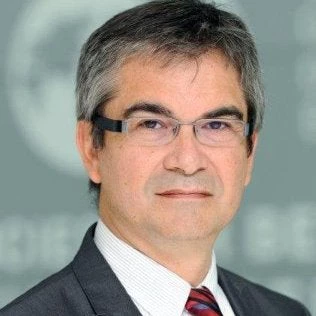
for Social Accountability Award” for the Africa Region by Sanjay Pradhan of the World Bank.
I recently had the honor of opening the Global Partnership for Social Accountability’s (GPSA) second annual Global Partners Forum in Washington, D.C.
This was the first year I participated in this event in my role as senior director for the Governance Global Practice, and what immediately struck me was the strength and vibrancy of the GPSA network. In the room that day we listened and engaged with over 200 GPSA partners including key stakeholders from government, academia, business and civil society. Together they represented 75 countries all coming together to discuss a passion for one issue: social accountability.
Social accountability may seem to be just a buzzword, but it is truly the “new normal” in development. Let me explain why.
At the World Bank Group, we believe that social accountability is the key way to address governance issues. That’s because it ensures information from the citizen’s perspective is put directly in the hands of government officials who have the capacity to make change happen. It also empowers people to demand and monitor these changes creating citizen-centric governance.
We established GPSA in 2012 to support this kind of constructive engagement between governments and civil society as a means to overcome governance challenges. The GPSA does this by providing strategic and sustained support to civil society organizations and governments for initiatives aimed at strengthening transparency and accountability through country-tailored approaches.
For example, in Tajikistan a GPSA project works to ensure water gets delivered when and where it is supposed to thanks to a citizen-based advisory body that has helped build transparency through better registration of service complaints. As a result service fee collection has risen from 70% to 85% allowing for further service improvements and investments by the water provider.
It is results like these that remind me of why social accountability is so important. The Tajikistan example is in fact just one of many stories shared at the Forum between Bank staff and other participants, including President Jim Kim who also spoke.
In his remarks Jim reiterated that the path to development comes from listening to the voices of civil society, and that active citizens are at the center of good governance. He also announced GPSA’s third Call for Proposals, a funding opportunity for social accountability projects for civil society in 45 countries.
And for the first time, leaders in the field were celebrated for their achievements. In an award ceremony hosted by Sanjay Pradhan, our Vice President for Leadership, Learning, and Innovation, seven individuals were recognized for their outstanding contributions, influence and impact in social accountability---it was a fitting reminder that the “new normal” is already here.
Tweet it: #WorldBank GPSA makes third call for proposals, a funding opportunity open to 45 countries.


Join the Conversation